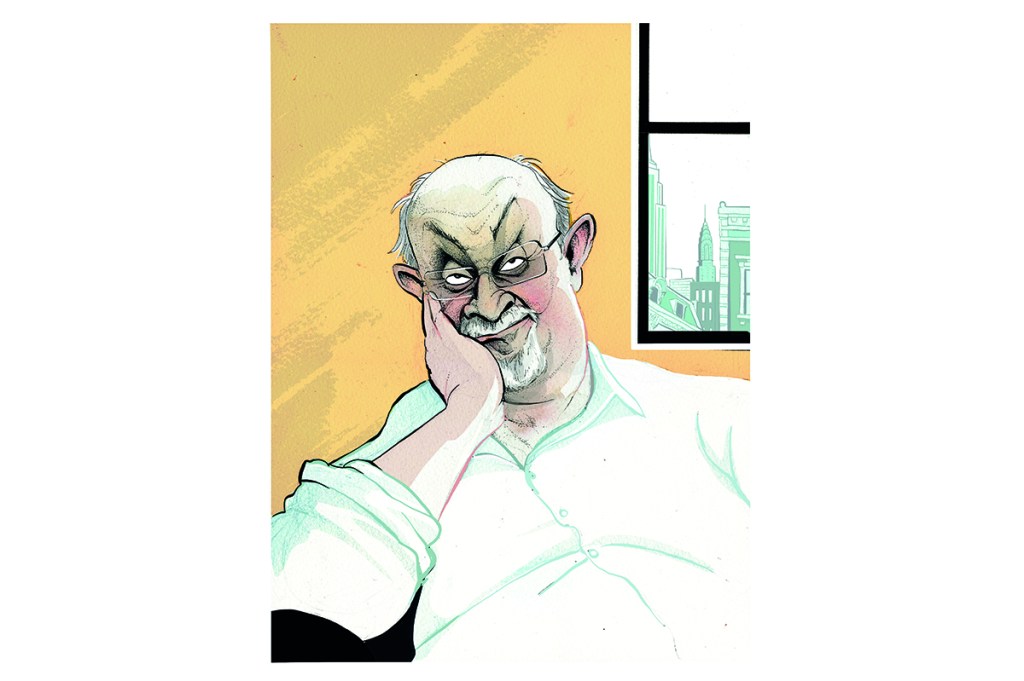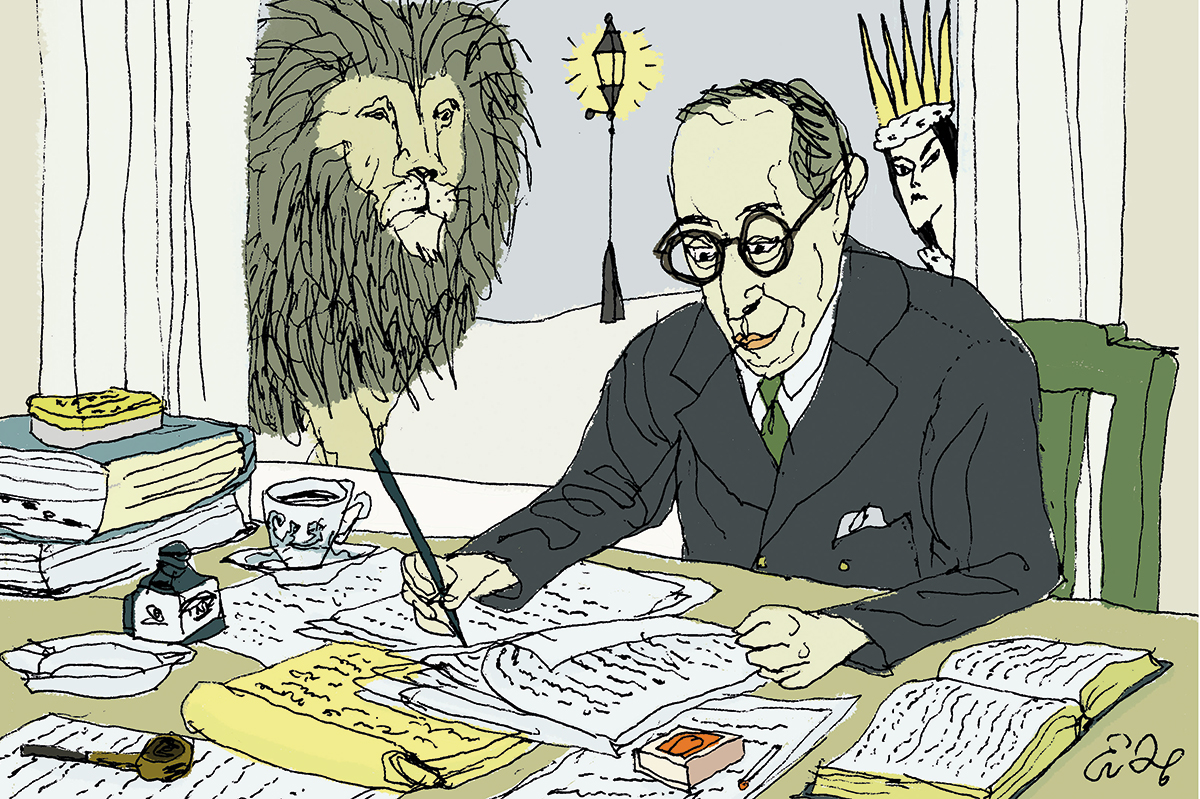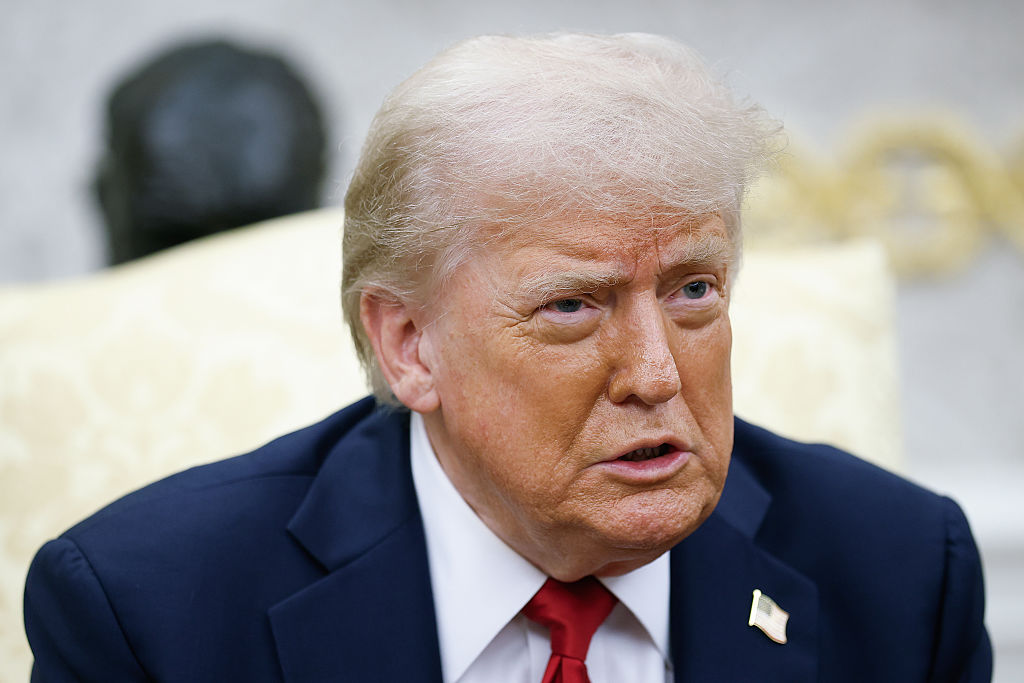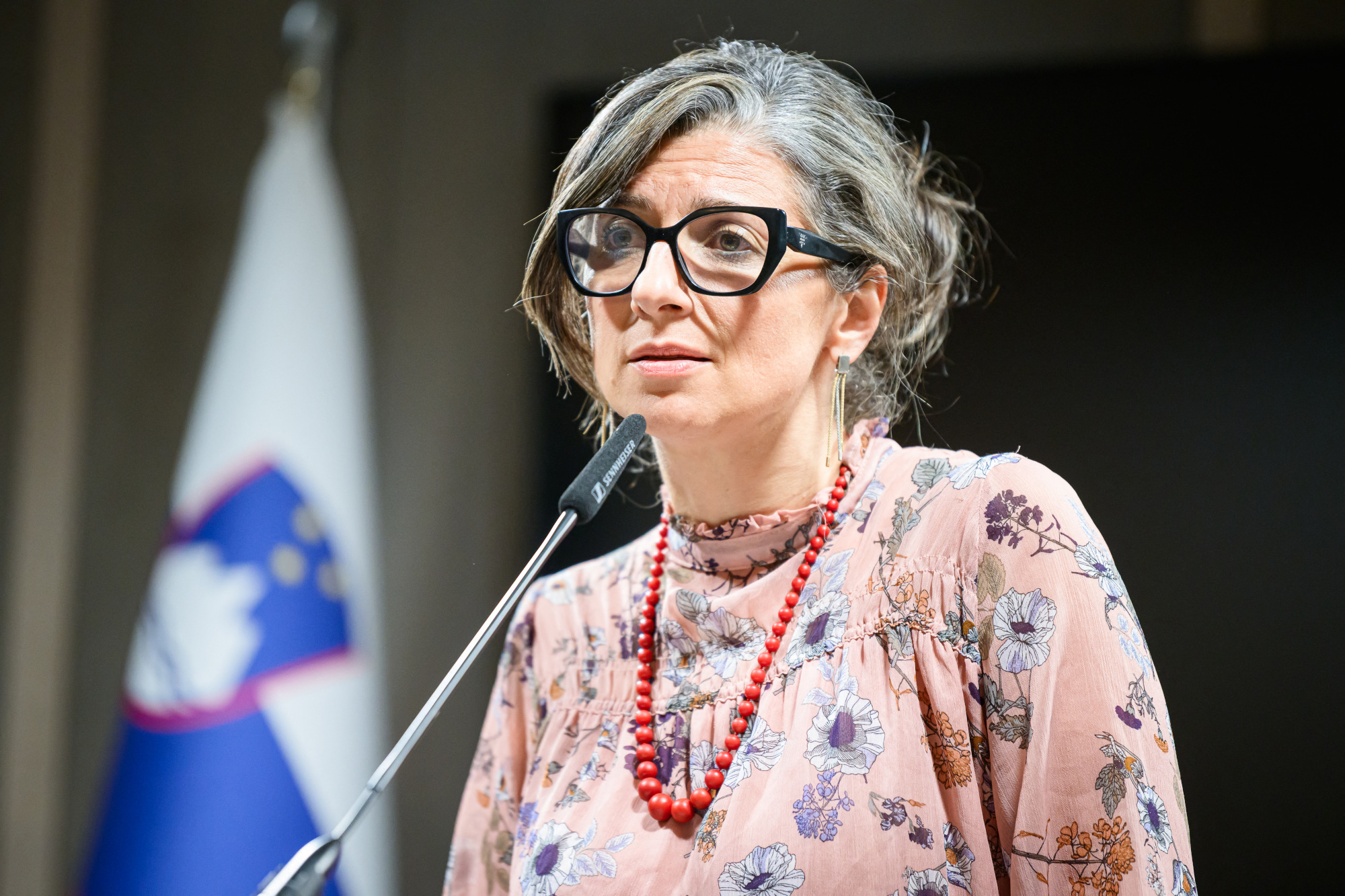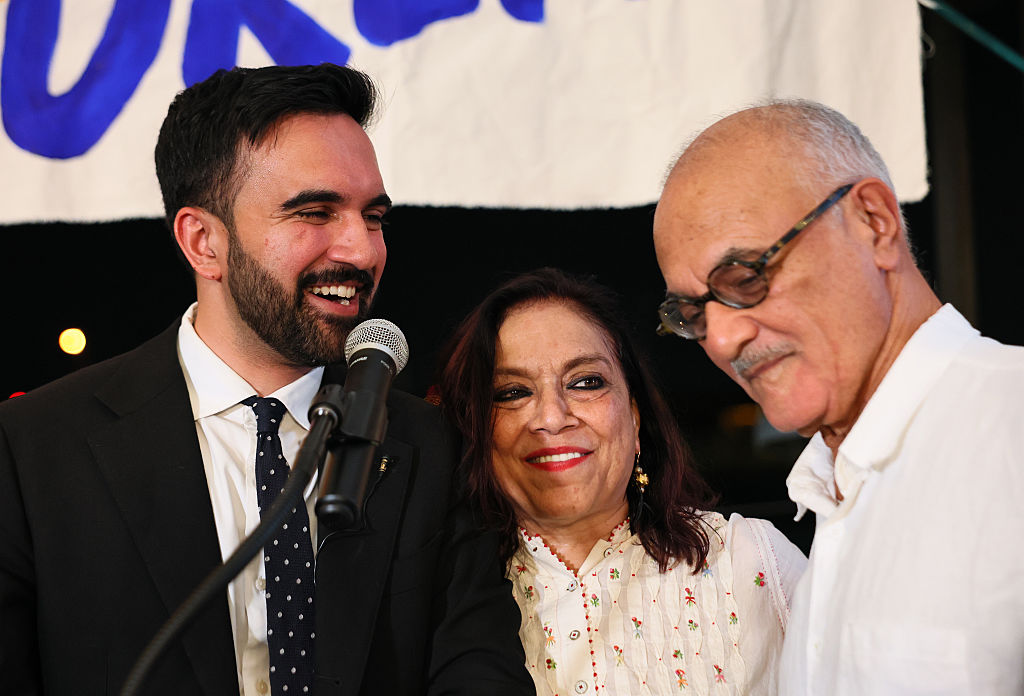In an interview with Stern magazine at the end of July, Sir Salman Rushdie was asked about the current circumstances of his life. Given that this is a question that he has faced since 1989, Rushdie might have been expected to respond with boredom, even irritation — as, understandably, he has done in other public conversations, when the subject of the fatwa that he has been under for nearly three and a half decades has been raised by an inquisitive or prurient journalist — but he responded with reasonably good cheer. Describing his everyday existence as “very normal,” he even ventured a light-hearted remark, saying, “A fatwa is a serious thing. Luckily we didn’t have the internet back then. The Iranians had to send the fatwa to the mosques by fax.” He concluded, with understandable relief, “That’s all a long time ago.”
It was not. At the time of writing, Rushdie lies critically ill in hospital, with injuries that, if not life-threatening, have been described by his family as life-changing. His agent dolefully described these at the time of his attack at the Chautauqua Institution on Friday August 12, as consisting of nerve damage to his arm and eye — two of a writer’s most sacred possessions — and stab wounds to his liver. Although a statement put out shortly after the attack described him as retaining his “defiant sense of humor,” the horrific events in Chautauqua represent not just a violent and cowardly assault on a seventy-five-year-old man, but an existential threat to writers’ free speech the world over.
When The Satanic Verses, Rushdie’s novel that sparked the original controversy, was published in the United States in late 1988, it received great critical acclaim. The forty-one-year-old author had established himself as one of the most innovative voices of his generation after the dual success of his 1981 Booker Prize-winning novel Midnight’s Children and its 1983 successor Shame. This follow-up, a magical realist story inspired by the life of the Prophet Mohammed, was seen by some commentators as his greatest work to date. It won the Whitbread Prize in the United Kingdom and was described by the critic Timothy Brennan as “the most ambitious novel yet published to deal with the immigrant experience in Britain.”
The backlash was steady, violent and horrific. By November, the book was banned in Pakistan for perceived blasphemy. In February 1989, Ayatollah Khomeini, supreme leader of Iran, issued a fatwa against Rushdie, declaring that “I inform the proud Muslim people of the world that the author of the Satanic Verses book, which is against Islam, the Prophet and the Koran, and all those involved in its publication who are aware of its content are sentenced to death.” Rushdie’s contemporary response was more irritated than horrified, as if he had received an especially bad review from an unwelcome but predictable source. “I am very sad it should have happened,” he said. “It is not true this book is a blasphemy against Islam. [But] I doubt very much Khomeini or anyone else in Iran has read this book or anything more than selected extracts taken out of context.”
The first murder happened in July 1991, when Rushdie’s Japanese translator, Hitoshi Iragasi, was found stabbed to death at the University of Tsukuba. He had already survived an unsuccessful attack the year before. In the same month, the Italian translator Ettore Capriolo was stabbed several times in Milan but survived. Another attempt, this time on the Turkish translator Aziz Nesin in July 1993, resulted in a frenzied orgy of violence by a fundamentalist mob that saw thirty-seven people killed and is today referred to as the Sivas massacre. Ironically, the assailants failed to murder Nesin because they were unable to recognize him. But there was always another defenseless, innocent target for the brutish to attack, and in October 1993, it was the Norwegian publisher William Nygaard, whose crime, as usual, was daring to be involved with a book that some found distasteful. He was shot three times — appropriately enough, in the back — but survived, despite needing months of hospital treatment.
During this period, Rushdie was in hiding, living through a series of half-comic, half-frightening events that he later described vividly in his 2012 memoir Joseph Anton, which he had hoped would be his last and definitive word on the subject. He was placed under round-the-clock protection by the British government, subsidized by himself, and kept away from the public gaze. He only left safe houses for rare, high-profile appearances, such as when he appeared, triumphantly, at a U2 concert in 1993 in London. (He later recalled that his son, when Rushdie asked his advice as to whether he should appear, said “Just don’t sing, dad. If you sing, I’ll have to kill myself.”)
But by the end of the decade, it seemed as if the full heat of the fatwa had cooled, and Rushdie resumed a life as one of London’s most invited and sought-after literary figures. There was a period that one could barely attend any book launch, no matter how grand or humble, without seeing a smiling, Champagne-swilling figure in the corner, apparently happy to talk to anyone about everything. The only occasion that I ever met Rushdie, at the after-party for the premiere of the 2005 film The Magic Roundabout, was deeply surreal. I remember having an earnest discussion about whether magical realism could ever work in cinema (he believed it could, with state-of-the-art special effects and vast budgets) while his son cavorted happily in a temporary recreation center behind us.
All the same, Rushdie talked to journalists at film premieres with the grim awareness that, when he was persona non grata under the fatwa, there had been many literary and political figures in both the United States and United Kingdom who had conspicuously failed to support him. John le Carré — in words that leave a permanent stain on his reputation — announced his disavowal of Rushdie by saying that:
My position was that there is no law in life or nature that says great religions may be insulted with impunity. I wrote that there is no absolute standard of free speech in any society. I wrote that tolerance does not come at the same time, and in the same form, to all religions and cultures, and that Christian society too, until very recently, defined the limits of freedom by what was sacred.
The former president Jimmy Carter, meanwhile, wrote an op-ed for the New York Times in March 1989 headlined “Rushdie’s Book Is An Insult.” He came close to siding with Rushdie’s persecutors when he wrote that “While Rushdie’s First Amendment freedoms are important, we have tended to promote him and his book with little acknowledgment that it is a direct insult to those millions of Moslems whose sacred beliefs have been violated and are suffering in restrained silence the added embarrassment of the Ayatollah’s irresponsibility.” Carter even suggested that although Rushdie’s human rights must be protected, “there is no endorsement of an insult to the sacred beliefs of our Moslem friends.”
I would very much like to know what President Carter’s reaction to the events of Friday August 12 is, if of course the ninety-seven-year-old retired politician still keeps abreast of such things. But today, there are useful idiots popping up on social media to continue his job for him. Their hand-wringing response to Rushdie’s attack is to condemn it, then hint at their regret for the offense caused by The Satanic Verses, then to offer some false equivalence with J.K. Rowling and her views on gender issues, which have become, for many, a similar battleground. It was no surprise that, when Rowling expressed her solidarity with Rushdie, someone appeared on Twitter to say “Don’t worry, you are next.”
There have always been threats against writers, the chroniclers and observers of an age. In most contemporary cases, these threats are the impotent anger of keyboard warriors too stultified by the dopamine of social media to make any kind of positive impact on the world themselves and reduced to empty braggadocio in online spaces, safe or otherwise. In the past, they consisted of angry, unsigned letters in the papers, or challenges to duels, or, most often, damning reviews cut through with personal fury. But when a twenty-four-year-old man — born well after the declaration of the fatwa — rushed up on stage and unleashed a frenzied and violent attack on a writer who, ironically enough, was due to talk about the United States as an “asylum for writers and other artists in exile and as a home for freedom of creative expression,” he created a terrifying, damning precedent.
We can only hope Rushdie not only recovers from his injuries but remains a vital, powerful presence in the world of literature. His commitment to free speech at all costs has been heroic and consistent throughout his distinguished career. Even those who have never read a single sentence by him should stand in solidarity with this principled and brave man who has demonstrated, in the face of appalling violence, that hatred and bigotry will never win, and that writing what you believe has never been more important than it is now.
As the author himself said last year, “The idea that being offended is a valid critique has gained a lot of traction… it’s better to know where ideas are than to give them the glamour of taboo. I want to know where the enemy is.” Now, regrettably, we have been shown, once again, as its victim lies in hospital.
This article was originally published in The Spectator’s October 2022 World edition.



